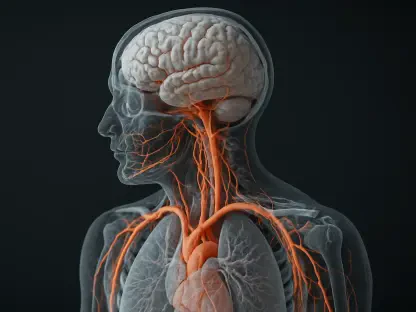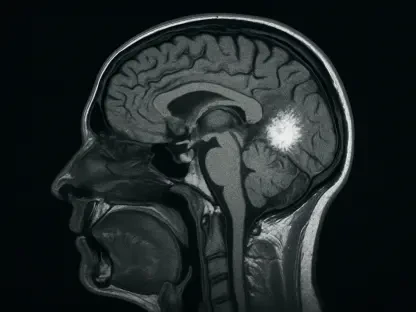In a startling turn of events, the United States faces a public health crossroads with the controversial leadership of Health and Human Services (HHS) Secretary Robert F. Kennedy Jr. Recent data from the Centers for Disease Control and Prevention (CDC) reveals a troubling resurgence of preventable diseases like measles, coinciding with a notable decline in vaccination rates, thrusting Kennedy’s vaccine policies into the national spotlight. This alarming trend raises urgent questions about the balance between personal skepticism and scientific consensus in shaping health strategies. As bipartisan criticism mounts and trust in key health agencies wavers, the nation grapples with the potential consequences of these divisive policies on community well-being.
Understanding the Context of RFK Jr.’s Role in Public Health
Robert F. Kennedy Jr.’s appointment as HHS Secretary has positioned him as a central figure overseeing critical agencies such as the CDC, the Food and Drug Administration (FDA), and the National Institutes of Health (NIH). His influence extends to shaping policies that directly affect disease prevention, health safety protocols, and research funding. This role carries immense responsibility, as decisions made at this level ripple through national and even global health frameworks, impacting millions of lives.
Vaccine policy stands as a cornerstone of public health strategy, serving as a primary defense against outbreaks of infectious diseases. Effective immunization programs have historically eradicated threats like smallpox and significantly reduced others, such as polio. The current debate surrounding Kennedy’s approach underscores the delicate balance between maintaining rigorous scientific standards and addressing public concerns, with implications for both immediate safety and long-term health security.
The stakeholders in this arena are diverse, encompassing lawmakers from both political parties, health advocacy organizations, the scientific community, and a concerned public. Political dynamics have intensified scrutiny of Kennedy’s appointment, with bipartisan voices expressing unease over his alignment with established medical consensus. These tensions highlight a broader struggle to prioritize evidence over ideology in safeguarding national health.
Examining RFK Jr.’s Vaccine Policy Changes
Key Policy Shifts and Controversies
Under Kennedy’s leadership, significant alterations to vaccine policy have sparked widespread debate. One prominent change includes the restructuring of the CDC’s Advisory Committee on Immunization Practices (ACIP), where new appointees with questionable expertise or known vaccine skepticism have replaced seasoned experts. Additionally, a decision to defund over $500 million in mRNA vaccine research has drawn sharp criticism, given the proven efficacy of this technology in combating COVID-19.
These policy shifts have been accompanied by internal upheaval, notably the abrupt dismissal of CDC Director Susan Monarez after a brief tenure. Reports suggest her exit stemmed from resistance to endorsing recommendations from the newly formed advisory panel. Alongside resignations of senior scientists, these actions have fueled accusations that personal skepticism is being prioritized over peer-reviewed research, undermining the credibility of health institutions.
The broader impact of these changes is evident in growing public distrust toward vaccines and the agencies promoting them. When authoritative bodies appear to waver in their commitment to science, hesitancy among communities increases, potentially unraveling decades of progress in immunization efforts. This erosion of confidence poses a significant challenge to maintaining robust health defenses against preventable diseases.
Impact on Public Health Metrics
Current data paints a concerning picture of public health under Kennedy’s tenure. Measles cases, once nearly eradicated in the U.S., have seen a marked resurgence, correlating with a decline in vaccination rates across several states. Agency morale has reportedly plummeted, with internal surveys indicating dissatisfaction among CDC and FDA staff, further hampering effective responses to emerging health threats.
Major medical organizations, including the American Academy of Pediatrics (AAP) and the American Medical Association (AMA), have issued statements contradicting Kennedy’s vaccine stance. The AAP, for instance, has taken the unprecedented step of releasing independent childhood vaccination guidelines, signaling a fracture in trust with federal recommendations. These actions reflect a unified concern within the medical community about the direction of national health policy.
Looking ahead, experts warn of dire long-term consequences if current trends persist. Forecasts suggest that sustained declines in vaccination coverage could lead to larger outbreaks of diseases like whooping cough or mumps over the next few years. Such outcomes would strain healthcare systems and disproportionately affect vulnerable populations, underscoring the urgent need for policy reassessment based on empirical evidence.
Challenges and Criticisms of RFK Jr.’s Leadership
Kennedy’s tenure has encountered substantial obstacles, with instability within health agencies emerging as a primary concern. The rapid turnover of key personnel, including high-profile dismissals and resignations, has disrupted continuity in critical operations. This internal chaos risks delaying responses to public health crises and diminishes the agencies’ ability to function as reliable stewards of national well-being.
Criticism has also surfaced during Senate hearings, where lawmakers have questioned potential conflicts of interest among new ACIP members, some of whom have ties to litigation against vaccine manufacturers. There is a growing perception that Kennedy’s leadership prioritizes legal and personal agendas over evidence-based policymaking, a concern echoed by both Democratic and Republican senators. This bipartisan backlash signals a rare unity in recognizing the stakes involved.
To address these challenges, various strategies have been proposed, including calls for Kennedy’s resignation or a reversal of contentious policies. Advocacy groups and some legislators advocate for reinstating science-driven leadership and transparent decision-making processes. Restoring trust will require deliberate efforts to rebuild credibility, ensuring that health agencies operate free from ideological interference and remain focused on protecting the public.
Regulatory and Political Landscape Surrounding Vaccine Policy
The regulatory framework governing vaccine policy is intricate, with HHS, CDC, and FDA playing pivotal roles in ensuring the safety and efficacy of immunizations. These agencies are tasked with rigorous testing, approval processes, and monitoring of adverse effects, adhering to standards that have historically safeguarded public health. Any deviation from these protocols risks undermining decades of established trust and reliability.
Politically, Kennedy’s policies have ignited a firestorm of debate, with criticism crossing party lines. Senators from diverse ideological backgrounds have expressed alarm over the dismissal of scientific expertise and the potential consequences for community safety. Even initial supporters, including President Trump, have shown signs of wavering, with recent statements calling for greater transparency in vaccine data, despite its widespread availability in medical journals.
This growing divide between federal health recommendations and independent medical guidelines exacerbates compliance challenges. As organizations like the AAP issue separate directives, confusion among healthcare providers and the public intensifies. The resulting fragmentation threatens to weaken national health strategies, highlighting the need for cohesive, science-based policies that align with global standards.
Future Implications of RFK Jr.’s Vaccine Stance
The long-term ramifications of Kennedy’s vaccine policies could be profound, with experts cautioning against increased risks of disease outbreaks. A sustained drop in immunization rates may lead to a revival of illnesses long under control, placing immense pressure on public health infrastructure. Such scenarios would likely disproportionately impact underserved communities with limited access to medical resources.
Emerging factors could shape the trajectory of these policies, including potential leadership changes or renewed advocacy for evidence-based approaches. If political will shifts toward prioritizing scientific consensus, there may be opportunities for policy reversals that restore confidence in health agencies. Conversely, continued resistance to established research could deepen public skepticism and hinder progress.
Innovation and global health trends also play a crucial role in this evolving landscape. Advances in vaccine technology and international cooperation offer pathways to mitigate risks, provided they are embraced by national leadership. The challenge lies in aligning domestic policies with broader health priorities, ensuring that the U.S. remains a leader in combating infectious diseases through informed, collaborative efforts.
Reflecting on a Path Forward
Looking back, the discourse surrounding Robert F. Kennedy Jr.’s vaccine policies revealed deep-seated concerns about the integrity of public health leadership. Senate hearings underscored bipartisan frustration, while data on rising disease rates painted a stark picture of the potential fallout. The collective alarm from medical organizations and advocacy groups amplified the urgency of addressing these policy missteps.
Moving forward, actionable steps emerged as critical to navigating this crisis. Stakeholders pushed for greater accountability through transparent decision-making and the reinstatement of science-driven appointees to advisory roles. A concerted effort to rebuild trust in health institutions became a focal point, with recommendations centering on public education campaigns to counter misinformation.
Beyond immediate fixes, the broader consideration was how to prevent similar challenges in the future. Strengthening regulatory oversight and fostering bipartisan commitment to evidence-based health strategies stood out as essential measures. These insights aimed to ensure that national well-being remained the paramount focus, guiding policy toward a more resilient and unified public health framework.









